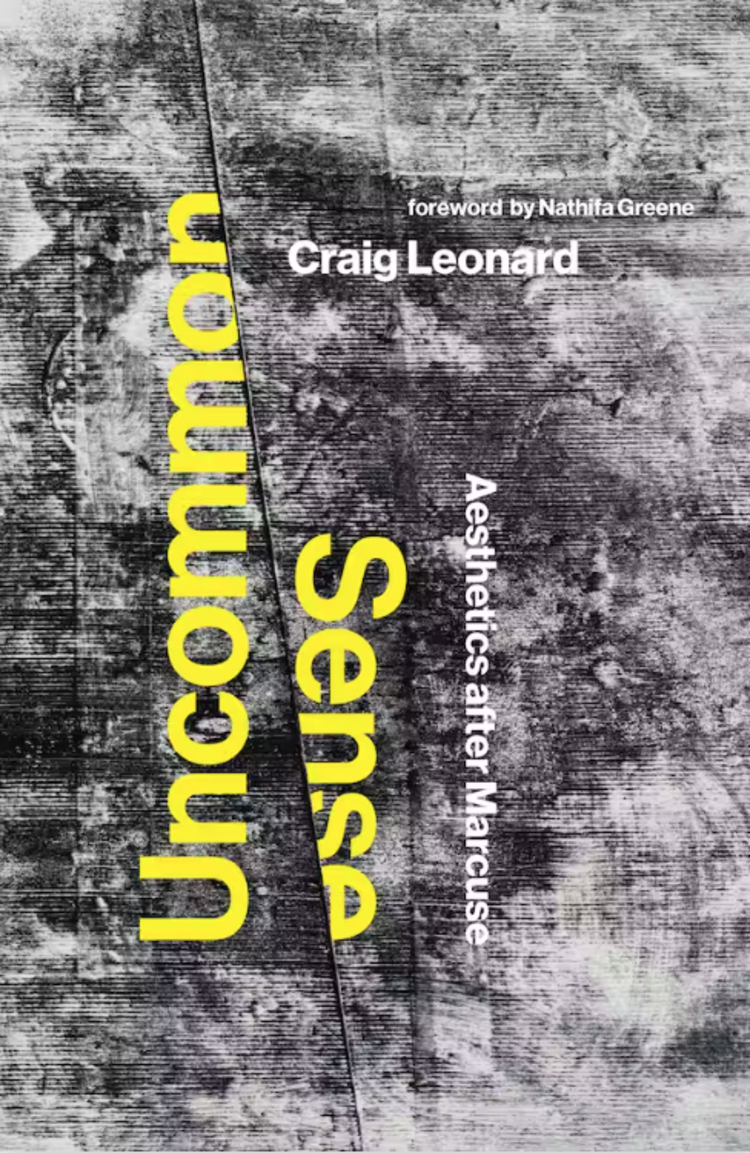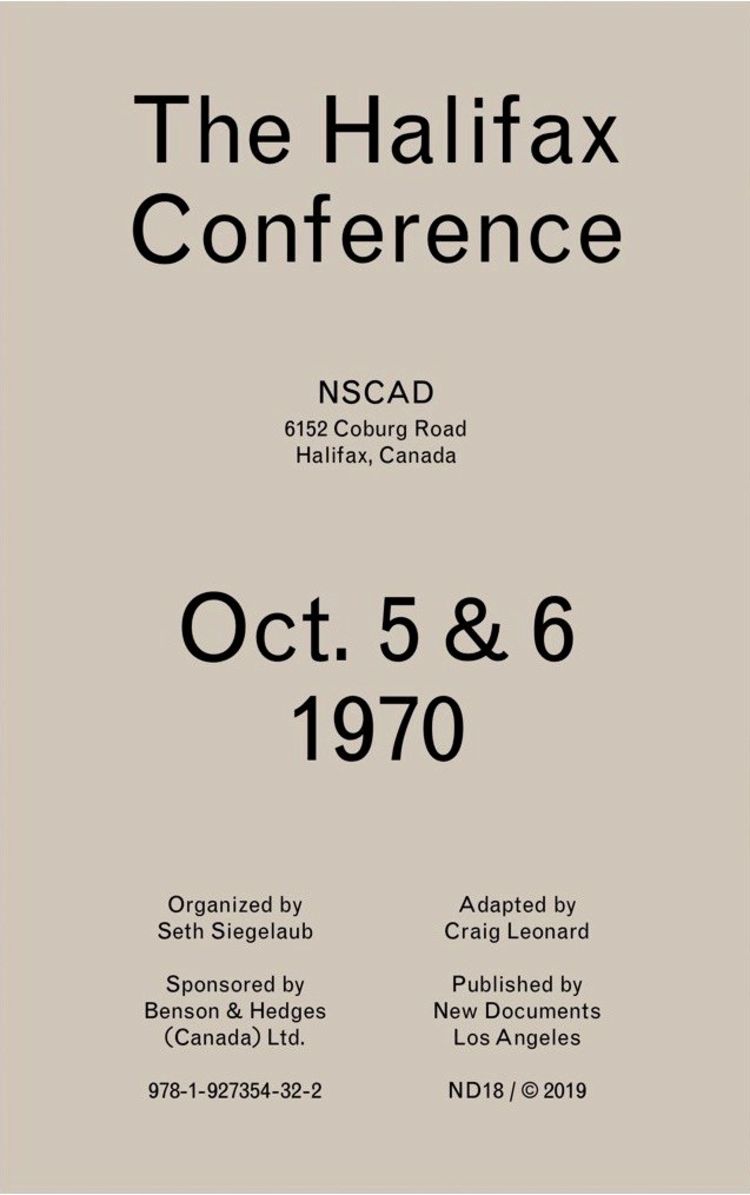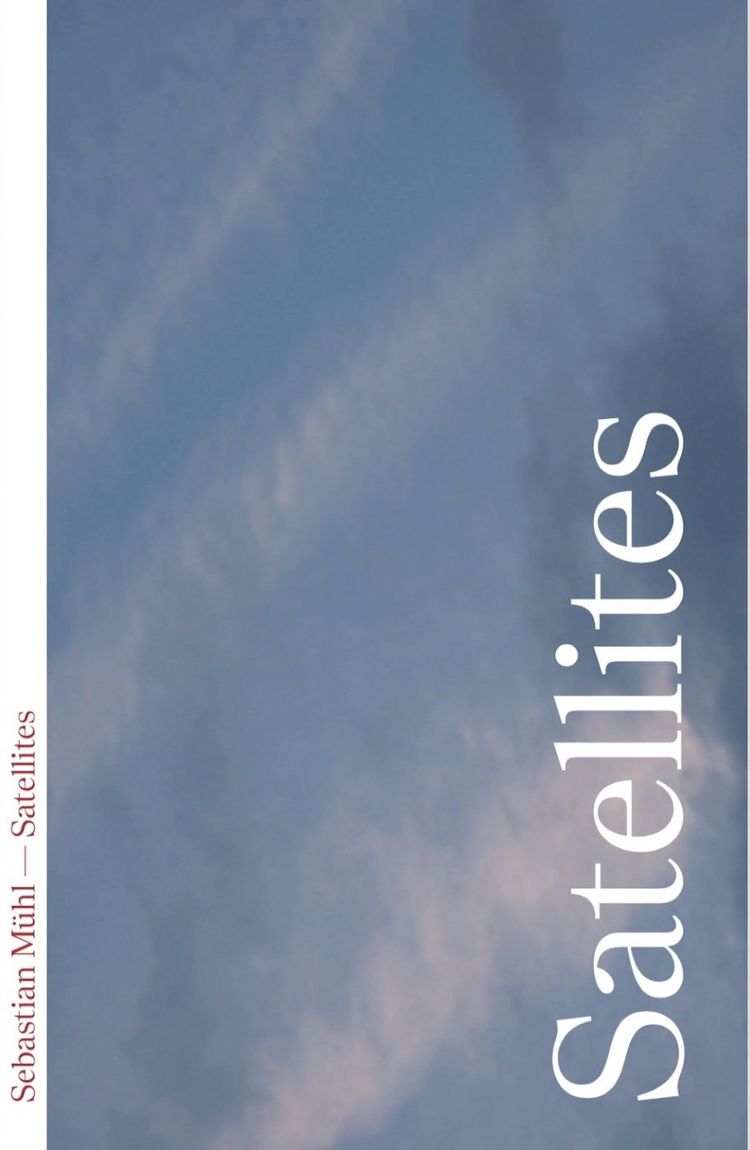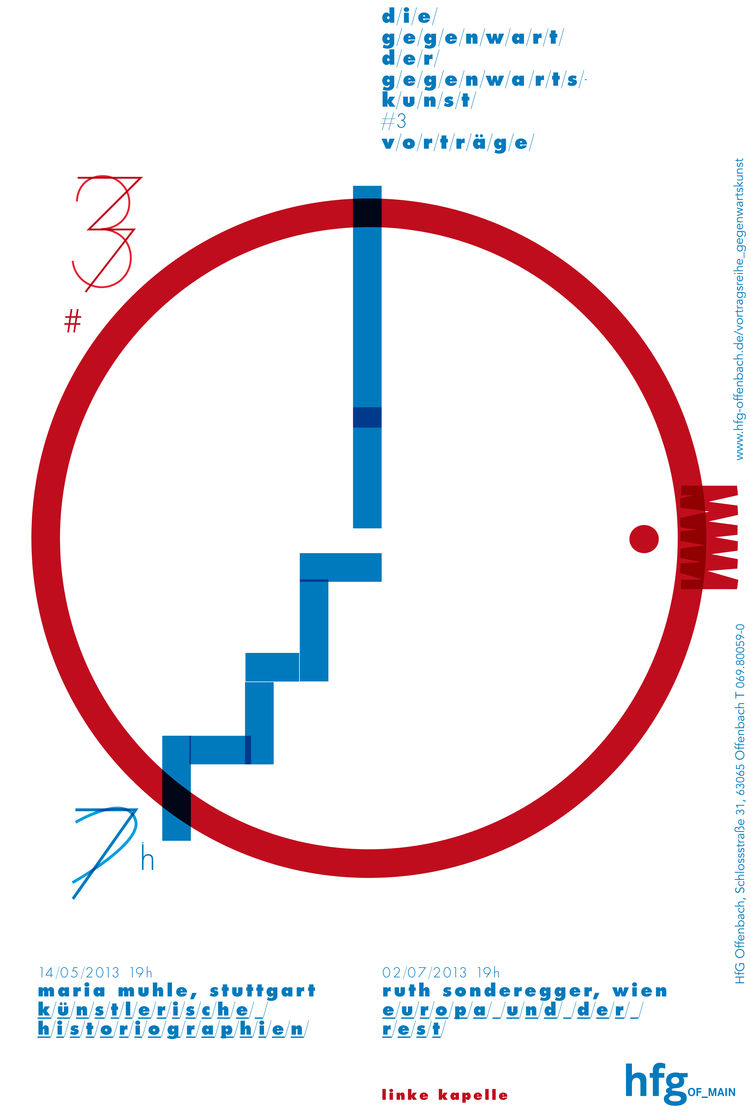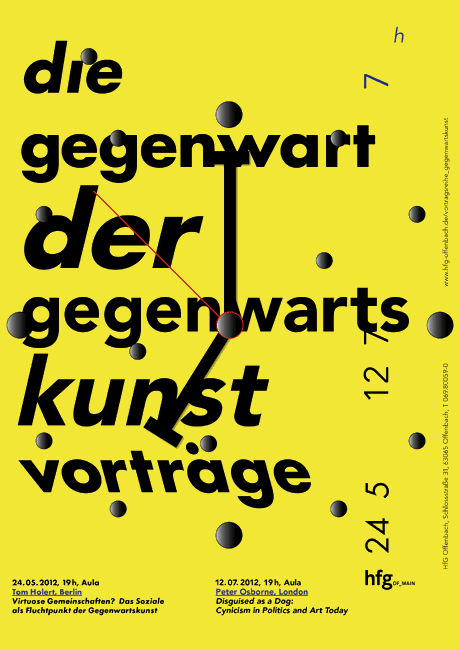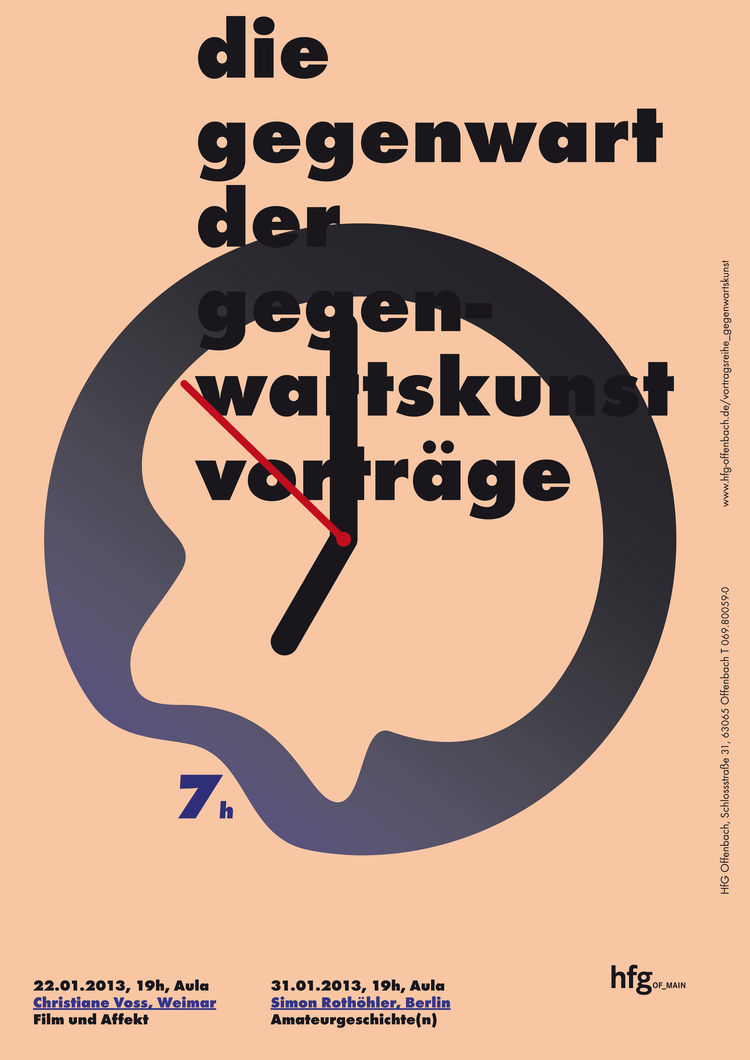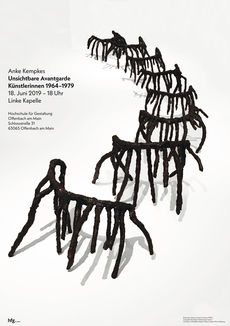Philosophy/Aesthetics
Substitute professor: Prof. Dr. Franziska Wildt
The field of philosophy and aesthetics will be represented by Prof. Dr. Franziska Wildt in the summer semester 2025.
Contact
Anna Schlote
research assistant
Nikolaus Kockel
Doctorate and research assistant
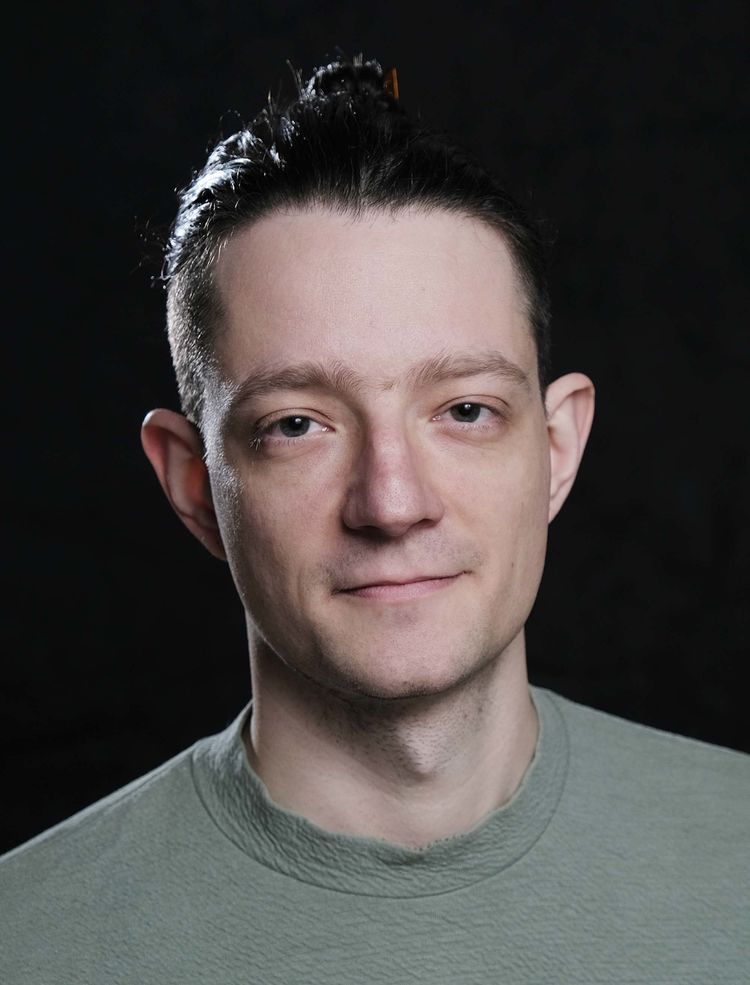
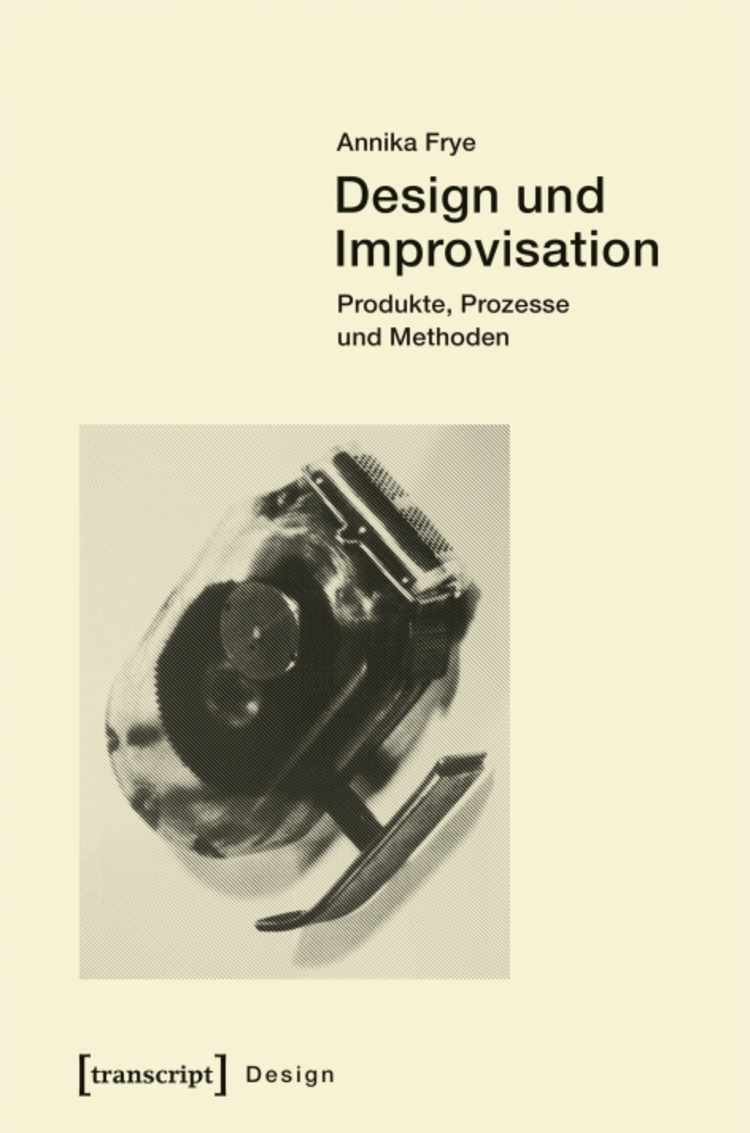
Annika Frye
Design und Improvisation
Transcript, 2017

Anne Kersten
Kunst und Landwirtschaft. Realitätsbezüge in der Gegenwartskunst
Transcript, 2021
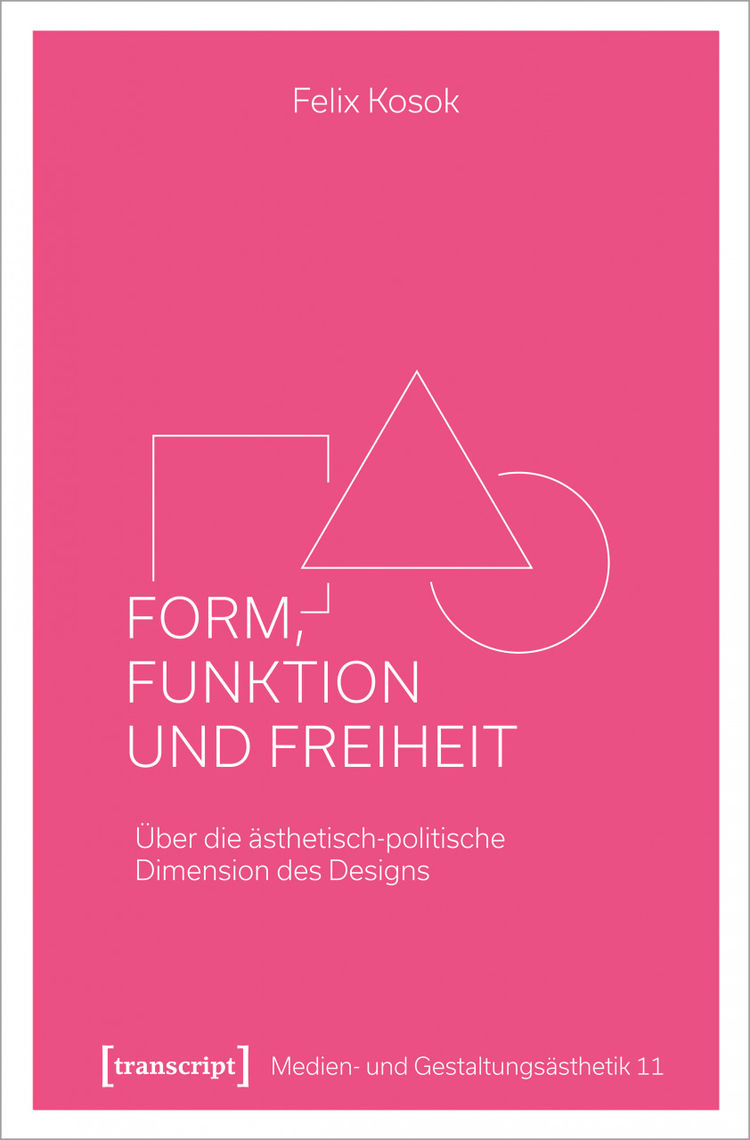
Felix Kosok
Form, Funktion und Freiheit. Über die ästhetisch-politische Dimension des Designs
transcript, 2021
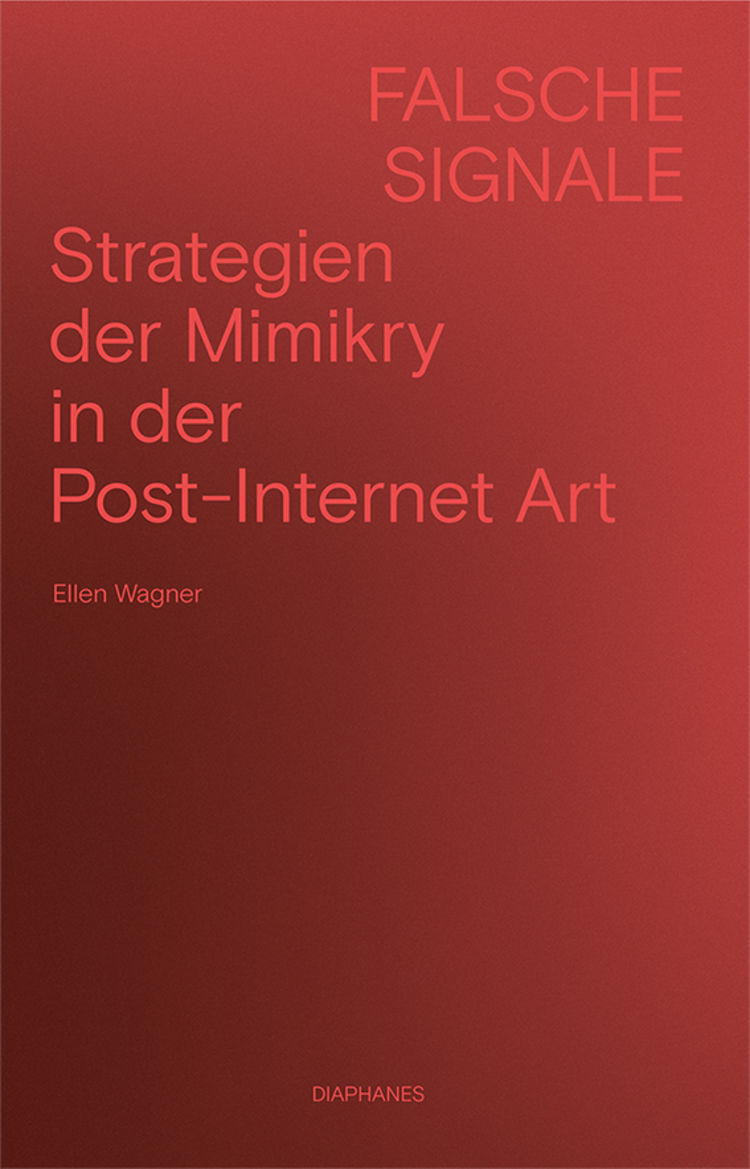
Ellen Wagner
Falsche Signale. Strategien der Mimikry in der Post-Internet Art
Diaphanes, 2021
Projekte
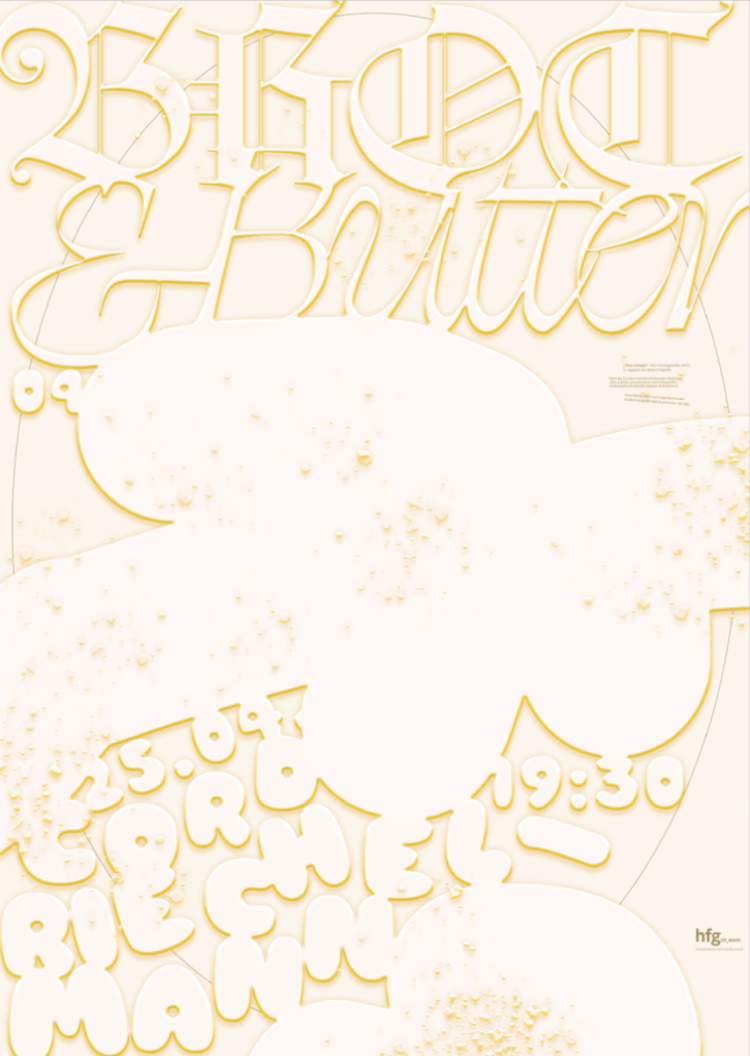
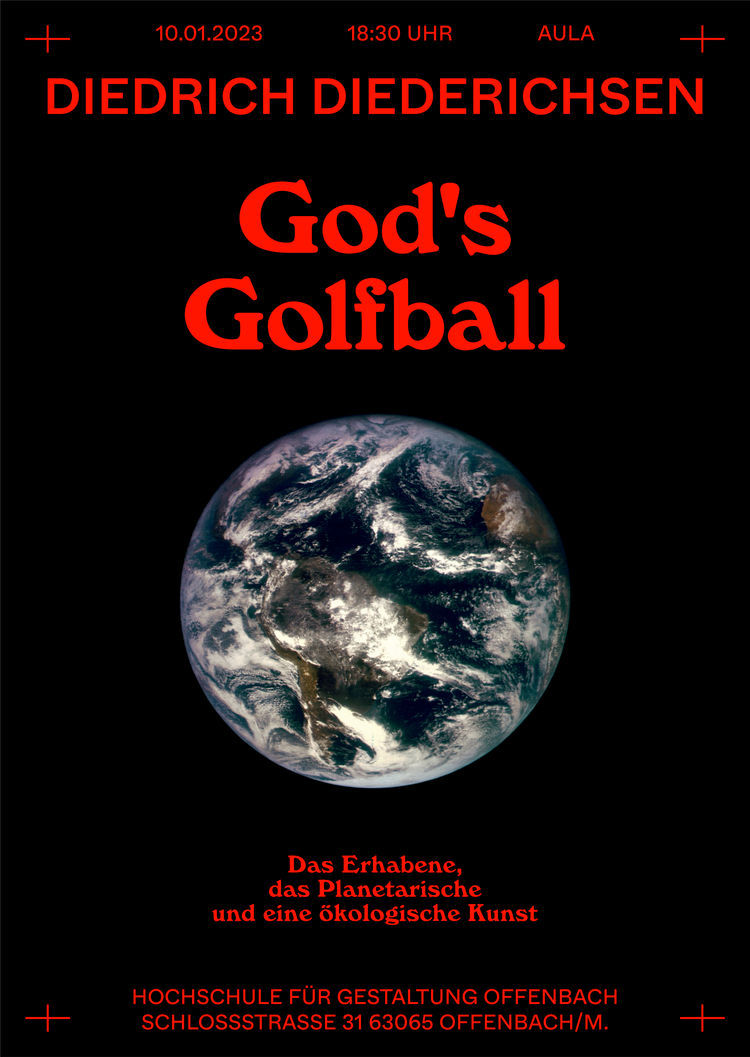
God's Golfball. Das Erhabene, das Planetarische und die ökologische Kunst
Diedrich Diederichsen
Vortrag
HfG Offenbach, 2023
Plakatgestaltung: Paula Heinrich
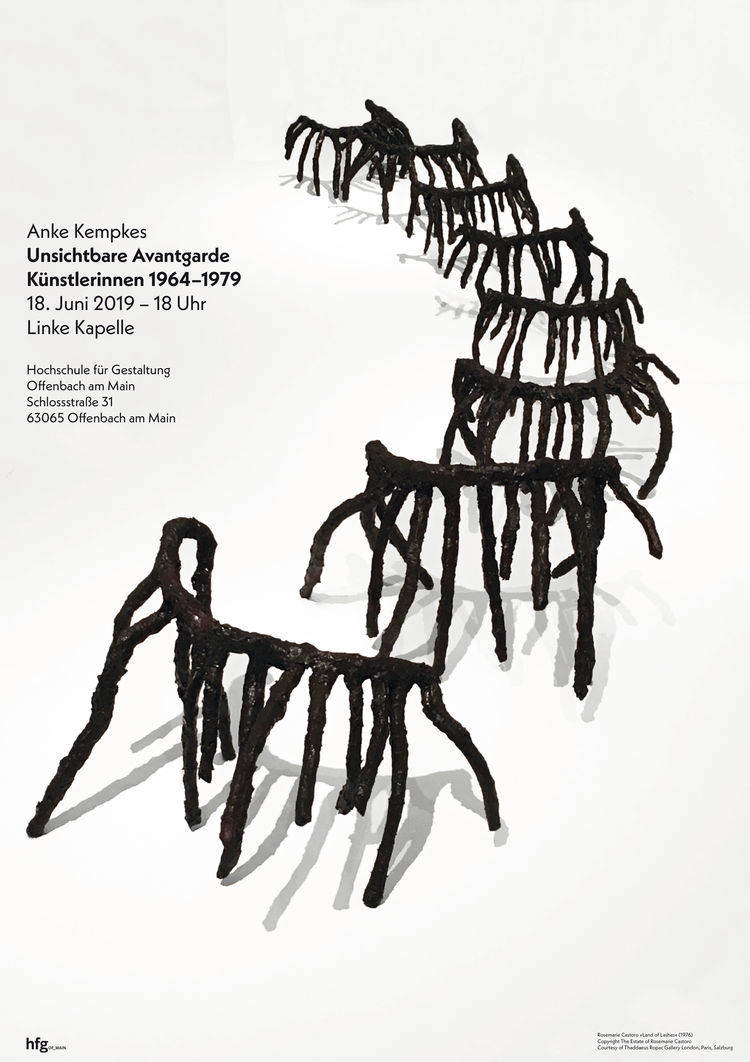
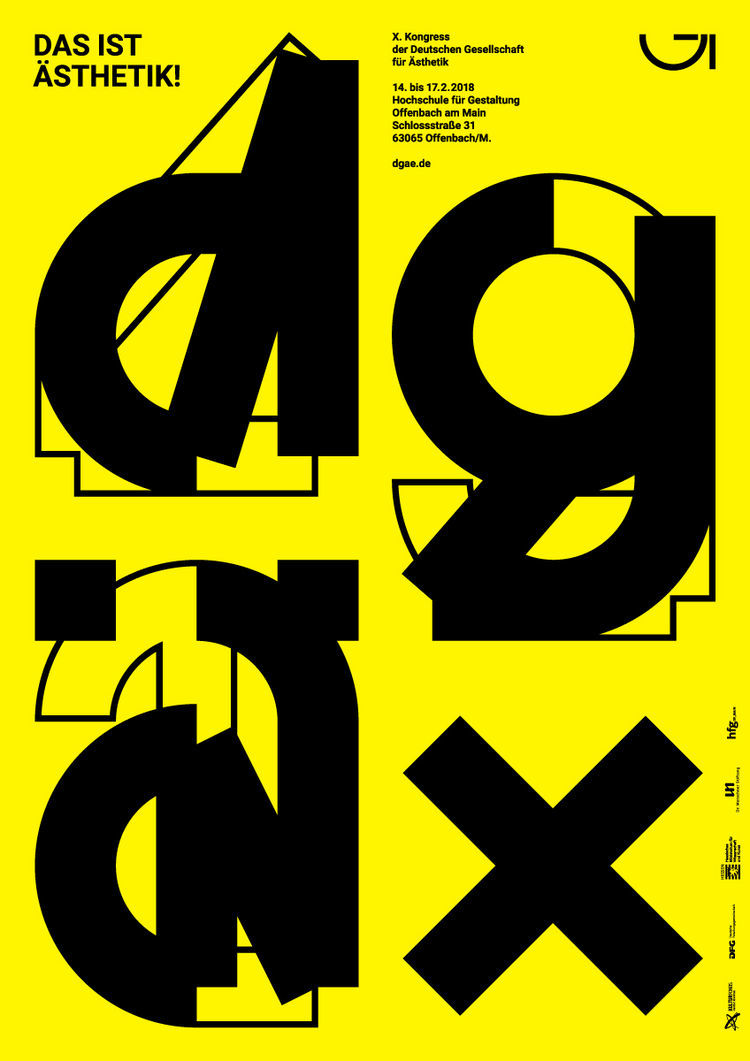
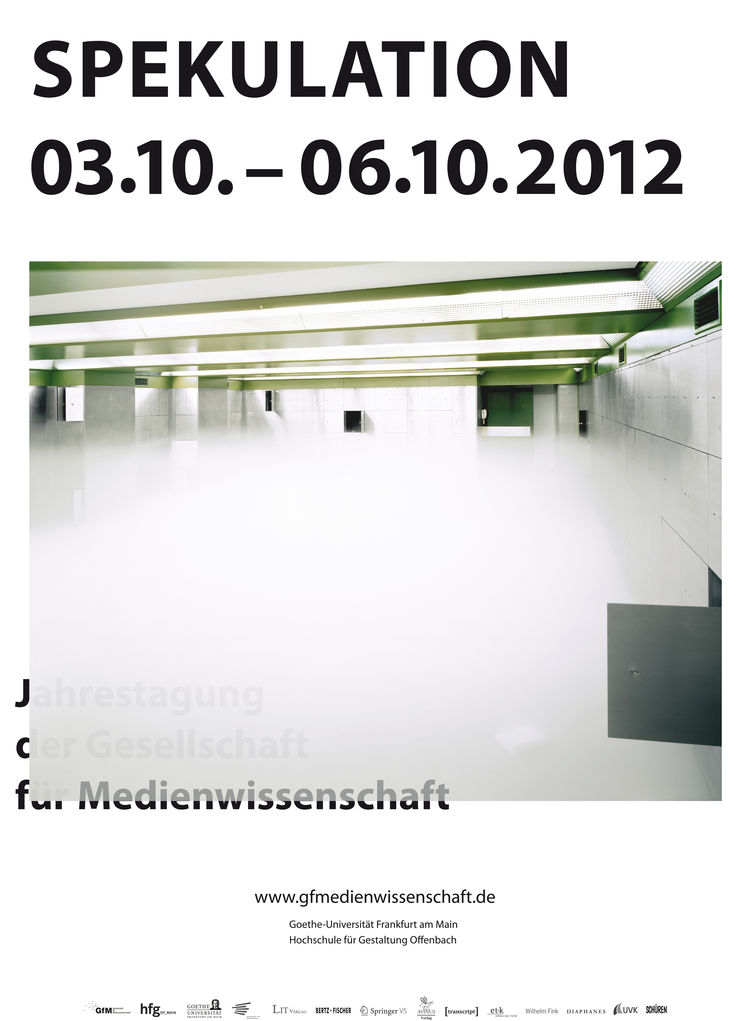
Spekulation
Annual conference Gesellschaft für Medienwissenschaft, Goethe-Universität Frankfurt / HfG Offenbach / Hessische Film- und Medienakademie, October 4, 2012
Poster design: Jan Münz und Benjamin Franzki, Photo: Patrick Raddatz
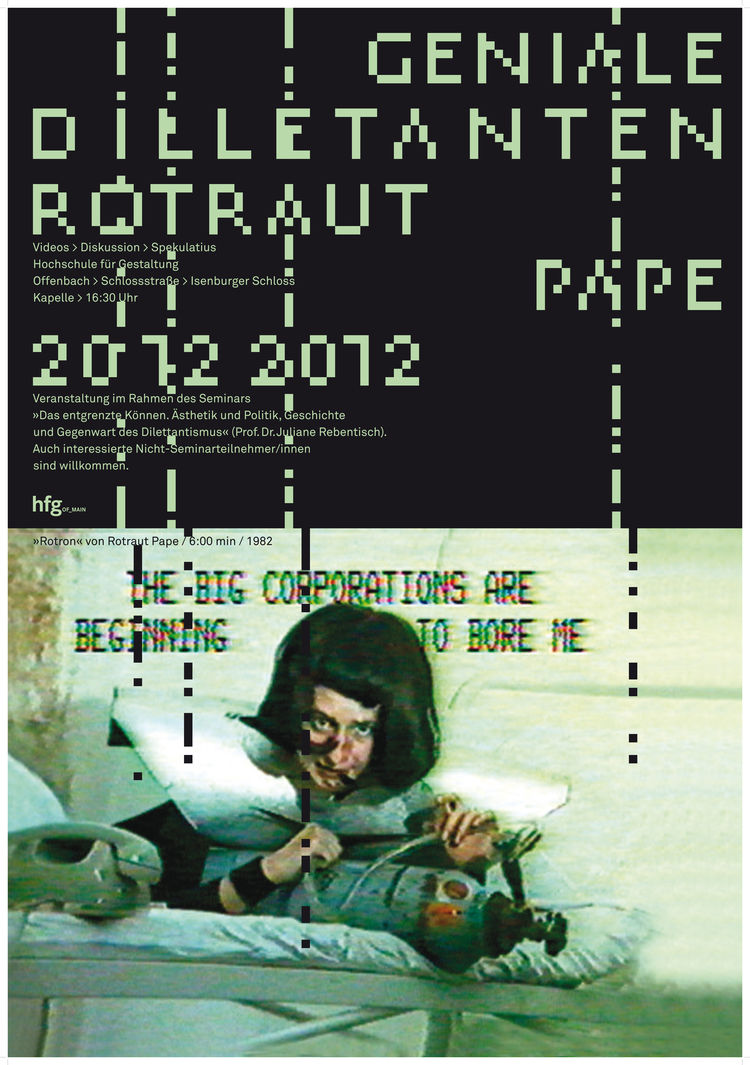
Geniale Dilletanten
Event with Rotraut Pape
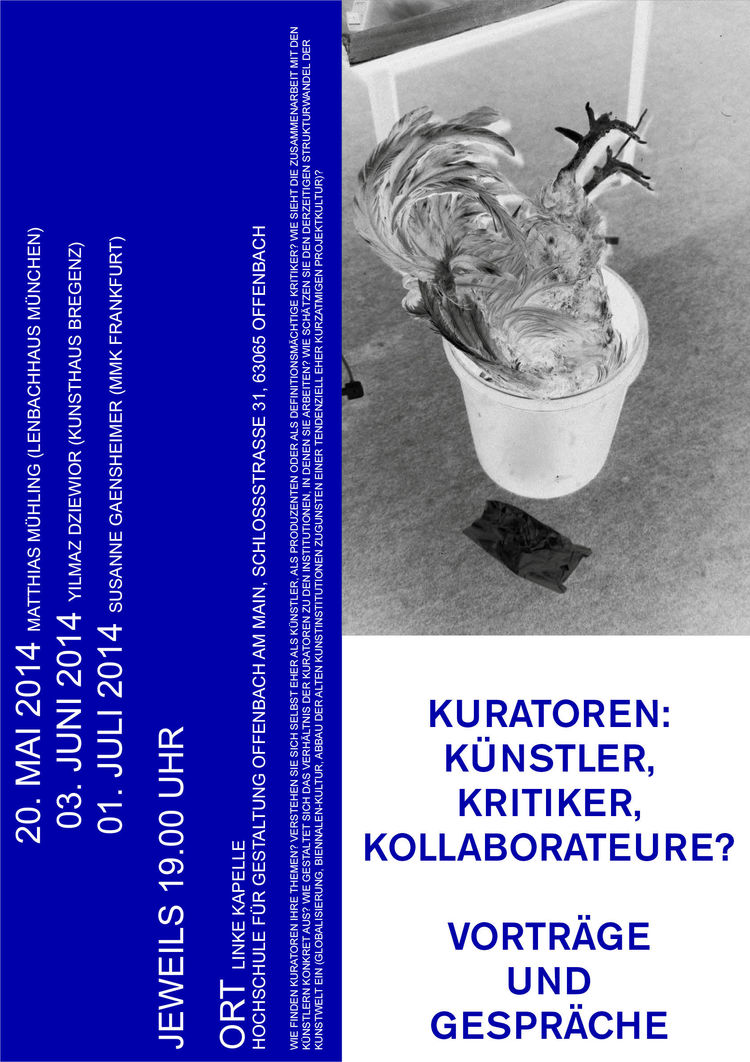
Kuratoren: Künstler, Kritiker, Kollaborateure?
Lecture series together with Julika Rudelius
Poster Design: Eike König
Promovierende Prof. Dr. Juliane Rebentisch
Contact Prof. Dr. Juliane Rebentisch
Students and doctoral candidates who are supervised by Prof. Dr. Juliane Rebentisch are welcome to contact this e-mail address: juliane.rebentisch@hfbk-hamburg.de
Doctoral candidates
Helene Deutsch
On humour in contemporary art
Supervisor: Prof. Dr. Juliane Rebentisch, Prof. Dr. Christiane Voss (2nd supervisor)
Thomas Dierkes
Rationality and Annihilation. On the Aesthetics of the Reich Security Main Office 1939-1945
Supervisors: Prof. Dr. Juliane Rebentisch, Prof. Heiner Blum
Nils Fock
Contestation. Negative Aesthetics after Georges Bataille
Supervisors: Prof. Dr. Juliane Rebentisch
Ulrich Gebert
Other-worldly things. Photography and the relationship to the world
Supervisor: Prof. Juliane Rebentisch; Prof. Dr. Bernd Stiegler (2nd supervisor)
Magdalena Hengst
Experience, body, vulnerability. The phenomenology of Jean Améry's physical vulnerability
Dominik Gussmann
The poetry of translation
Supervisor: Prof. Dr. Juliane Rebentisch,
Nikolaus Kockel
Relevance work
Supervisor: Prof. Dr. Juliane Rebentisch
Johanna Laub
Ambivalenzen der Vergegenwärtigung. Geschichte und historische Erfahrung in hybriden Bewegtbildern der Gegenwartskunst
Betreuende: Prof. Dr. Juliane Rebentisch, Prof. Dr. Marc Siegel (2nd supervisor)
What Are We Waiting For? The Time of Waiting in Queer, Decolonial and Feminist Aesthetics
Supervisor: Prof. Dr. Juliane Rebentisch, Prof. Dr. Marc Siegel (2nd supervisor)
Nina Wood
Autotheory. Writing from Fragments as Queer_Feminist Practice
Supervisor: Prof. Dr. Juliane Rebentisch, Prof. Dr. Heinz Drügh (2nd supervisor), Prof. Heiner Blum
Adrian Williams
The Horses Mouth: Unmasking the Vocal Surrogate
Supervisor: Prof. Dr. Juliane Rebentisch, Prof. Dr. Marie-Hélène Gutberlet
Further information
Completed doctorates
- Prof. Dr. Annika Frye (2nd supervisor)
- Dr. Anne Gräfe
- Dr. Anne Kersten
- Prof. Dr. Felix Kosok
- Prof. Dr. Craig Leonard
- Dr. Sebastian Mühl
- Dr. Ellen Wagner (2nd supervisor)
Calendar
18 June 2019Anke Kempkes: Invisible Avant-Garde. Women Artists 1964-1979
06:00 PM, Isenburger Schloss, linke KapelleNews
Deutsche Gesellschaft für Ästhetik
For the next three years Offenbach University of Art and Design will be the seat of the Deutsche Gesellschaft für Ästhetik.
